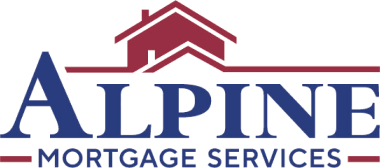Conventional Loans
Conventional loans are the most common option for financing homes. A conventional loan is a mortgage that is not guaranteed or insured by any government agency. Instead, it adheres to the guidelines set by Fannie Mae and Freddie Mac, two government-sponsored enterprises that work to stimulate the U.S. housing market. These loans are offered by private lenders, such as banks, credit unions, and mortgage companies. Conventional loans that fall within the loan amount limits established by Fannie Mae and Freddie Mac are called conforming loans. If the loan amounts are over the conforming loan limits then they are called jumbo mortgages.

Types of Conventional Loans
Fixed Rate Mortgage. These loans have a fixed interest rate for the entire loan term, which typically ranges from 15 to 30 years. They offer stability in monthly payments and are ideal for those who plan to stay in their home for a long time.
Adjustable Rate Mortgage (ARM). ARMs begin with a fixed interest rate for a set period (usually 5, 7, or 10 years), after which the rate adjusts annually based on market conditions. This type is suitable for those expecting to move or refinance before the rate adjusts.
Conventional Purchase and Refinance Options
Conventional loans not only facilitate the purchase of homes but also offer several refinancing options. Here's an overview of conventional purchase and refinance options that cater to different borrower needs:
Conventional Purchase Loans
On a conventional purchase, you can put down as little as 3% down. If you put less then 20% down, then you will need to pay private mortgage insurance (PMI). You can choose between a fixed rate mortgage or an adjustable rate mortgage.
Conventional Refinance Loans
A conventional refinance loan provides a way to replace an existing mortgage with a new one, typically to reduce interest rates, lower monthly payments, or tap into home equity. Here are common types of conventional refinance loans:
Rate-and-Term Refinance (Limited Cash Out). The most straightforward type, this involves refinancing the remaining balance for a lower interest rate or a different loan term. It's a great way to reduce monthly payments or change the length of your mortgage. You can also finance the closing costs into the new loan.
Cash Out Refinance. This option allows homeowners to refinance their mortgage for more than they owe and take the difference in cash. It's useful for consolidating high-interest debt, home improvements, or other significant expenses.
Conventional Loan Requirements
To qualify for a conventional loan, borrowers typically need to meet more rigid standards compared to government-backed loans such as:
Credit Score. A minimum score of 620 is generally required, with better terms offered to those with higher scores.
Down Payment: Conventional loans can require as little as 3% down, but a down payment of 20% or more can eliminate the need for Private Mortgage Insurance (PMI).
Debt-to-Income Ratio (DTI). A conventional loan can accept a DTI ratio up 50%, which means your mortgage payment plus your other monthly debt obligations cannot be more than 50% of your gross monthly income.
Employment and Income. Borrowers must provide proof of stable employment and income through documents like pay stubs, tax returns, and W-2 forms.
Occupancy Types. Conventional loans can be used to purchase a primary residence, a vacation home or an investment property.
Property Types. Conventional loans can be used to finance a wide variety of properties such as a single family residences, multi-family residences up to 4 units, condominiums and cooperatives (coops). An appraisal is often required to confirm that the value of the property supports the loan amount.
Maximum Loan Amount Limits. Conventional loans have maximum loan amount limits that can vary by county. You can view the loan limits for each state we lend in by clicking the states below:
Benefits of a Conventional Loan
A conventional loan comes with several advantages:
Flexibility in Property Use. Unlike some government loans, there are no restrictions on the type of property you can purchase, whether it be a primary residence, a second home, or an investment property.
No Upfront Funding Fees. There is no requirement for an upfront funding fee, a common expense in some government-backed loans.
Lower Cost Over Time: If the borrower puts down 20% or more, avoiding PMI can save a significant amount over the life of the loan.
Higher Loan Limits. Conventional loans allow for higher borrowing amounts, especially in high-cost areas, compared to FHA loans.
Conventional Renovation Loans
Conventional renovation loans are a type of financing that allows homebuyers or homeowners to purchase or refinance a property while including the costs of renovations and repairs in the loan amount. There are 2 types of conventional renovation options, the Fannie Mae Homestyle Renovation and the Freddie Mac ChoiceRenovation. These loans are different from regular conventional loans because they take into account the "after-improved" value of the property, which is the estimated value of the home after the planned renovations are completed. The funds can be used for a variety of projects, including structural repairs, updating kitchens or bathrooms, adding new rooms, and other home improvements. Conventional renovation loans provide a convenient way for borrowers to finance both the purchase or refinance of a property and the necessary renovations in a single loan, often with more favorable terms than other financing options.
Comparing Conventional and Government Loans
While conventional loans offer several benefits, government loans are designed to assist specific types of buyers:
FHA Loans. Easier qualification criteria and a lower minimum down payment (3.5%), ideal for first-time homebuyers or those with less-than-perfect credit. FHA loans can only be used to purchase a primary residence.
VA Loans. Available to veterans and active military, these offer no down payment, no PMI, and flexible qualification criteria. VA loans can only be used to purchase a primary residence.
USDA Loans. Targeted at rural homebuyers, requiring no down payment and providing below-market mortgage rates.
How to Get Pre-approved for a Conventional Loan
Getting pre-approved for a conventional home loan is quick and easy with our online Loan Application. After completing the application, you will receive instructions on how to upload your documents. For a list of documents that you will need to upload, see our Pre-approval Document Checklist.
Conventional loans often require higher credit scores and down payments but offer greater flexibility and potential cost savings over time. They are best suited for borrowers with stable finances who can afford larger down payments and seek a broader selection of property types.
Alpine Mortgage provides conventional loans in California, Colorado, Connecticut, Florida, Georgia, New Jersey, New York, Ohio, Pennsylvania and Texas. Call us today at (800) 876-5626 to speak with one of our conventional mortgage loan specialists or click here to have one of our conventional home loan specialists contact you.
Conventional Loans FAQs
View our current Conventional Mortgage Rates
A higher credit score can lead to better interest rates and loan terms. While the minimum required score for a conventional loan is usually 620, scores above 740 are likely to secure the most favorable rates.
Yes, some lenders offer conventional loan programs tailored for first-time homebuyers that feature lower down payments and may include options like PMI discounts or reduced interest rates.
Get a Quick Quote
"*" indicates required fields
